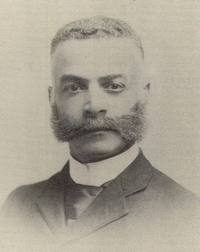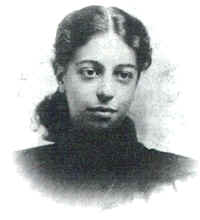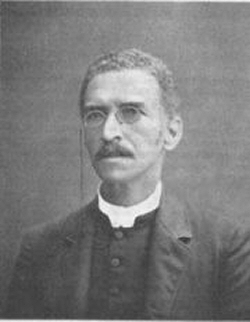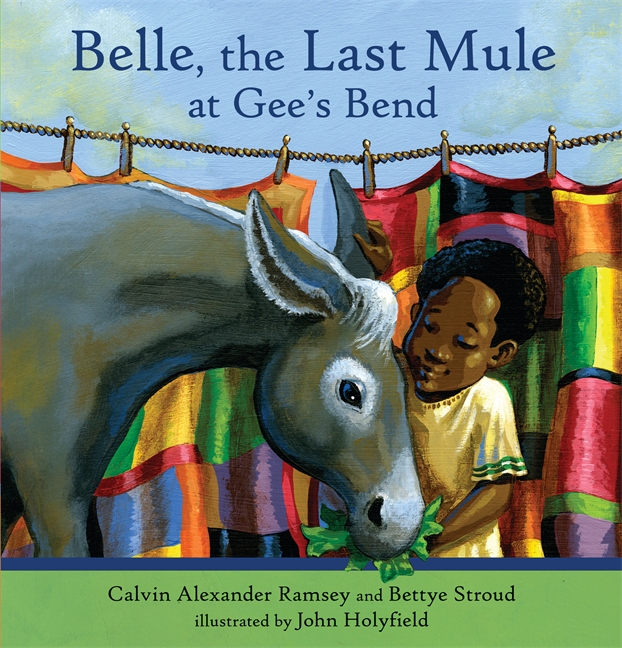Wednesday, January 25, 2012
State of the Union
You forget, reading the papers, watching professional actors and models, how ordinary most of us are in appearance: chubby women (like me!) in red skirt suits, Gabby Giffords looking fragile, the people in Michelle Obama’s box: Giffords’ bald husband what’s-his-name the astronaut, Warren Buffet’s secretary, someone who represented people who got job help and was all happy and cheerful. Much of the audience, Democrats but some others too, seemed to enjoy getting caught up and carried away, feeling patriotic and virtuous. At some level, I guess that’s what they’re about, patriotism, sentimentality, along with the deal making and schmoozing and eating corn dogs and barbecue. I thought of my one-time NYU SCPS student who seems very decent, Steve Israel of Long Island who is moving up fast in the Democratic ranks in the House.
So there is some goodness out there, not all a hateful circus like the Republican debates– anyhow, I gave over for the moment, moved by the President's eloquence, by Congressman John Lewis’s good old battered face, by the three women Justice, by Olympia Snowe clapping more than a Republican was supposed to.
I felt included last night, in spite of Obama sounding a big supporter of fracking and boasting about what it was like being in the Situation Room when we finally got Osama bin Laden.
I felt like an American for a moment.
Thursday, January 19, 2012
PIPA SOPA Blackouts and more
I didn't black out my website yesterday, but I'm opposing SOPA and PIPA. If you haven't been following these proposed congressional bills that threaten to limit free speech on the Internet in the name of property rights, you might take a look at this NYTimes piece by Rebecca McKinnon or go to Wikipedia's explanation of their Black Out,
According to today's papers, a lot of congresspeople pulled way back on this-- not, of course, because of me, but because of Web terror. Probably because they saw the Googles and Wikipedias as Even Bigger Business than the Chamber of Commerce and Walt ("75 more years") Disney.
The question is, are they right? Or is this actually something bigger? Was it the New Corporations versus the Old Ones, or the millions of us who want the Web open?
Tuesday, January 17, 2012
At Last! My Name is Up In Lights!
January, 2012, and my name is... in plastic letters, anyhow!
Workshops with eighth graders in Point Pleasant Beach, New Jersey...
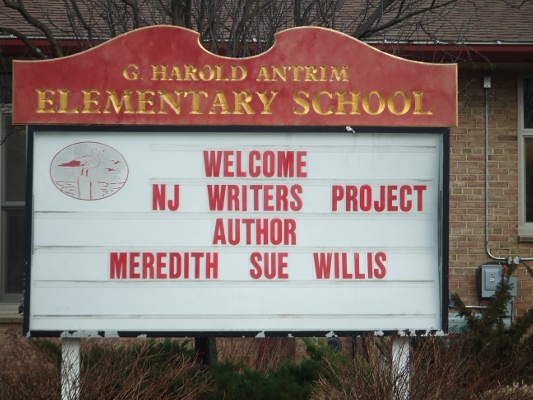
and a talk at the Ethical Culture Society in Maplewood....
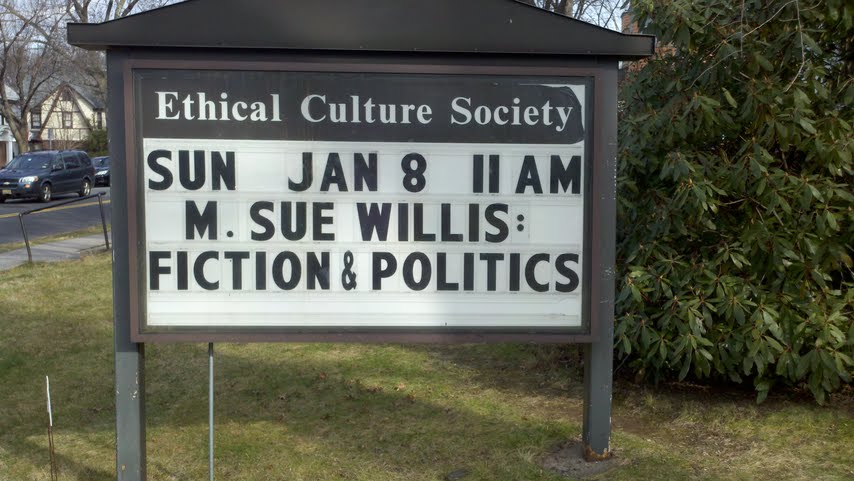
Monday, January 16, 2012
Books for Readers # 148
Meredith Sue Willis's
Books for Readers # 148
January 16, 2012
It looks better online! Read it here.
Elmore Leonard Wilkie Collins Archibald Grimké Angelina Weld Grimké Francis Grimké,
In this Issue:
Phyllis Wilson Moore on Belle, the Last Mule at Gee's Bend
Free e-mail subscription to this newsletter.
To create a link to this newsletter, use this permanent link .
For Back Issues, click here.
I'm just coming out of a month of family visits and cooking and digesting big meals. Our weather here in the garden state has been dry and cold with no snow, so while there are still greens and lettuce under plastic in the garden, it's hard to get them out of the frozen ground.
Anyhow, it's my favorite time for Victorian novels and other story-centric books. I read a newish Elmore Leonard called DJIBOUTI that I borrowed from the library for Kindle, and I read THE MOONSTONE by Wilkie Collins, free for the Kindle. THE MOONSTONE is often called the first modern mystery, and it has a detective and a lot of hokey scientific deducing and evidence collecting, but the mystery and detecting are the least of the fun.. Collins tells the story by having characters give their own versions of events then handing off to someone else in a series of reports plus and journal entries. The book has several interesting and quirky characters: Mr. Betteredge, an old family retainer, uses Robinson Crusoe as others use the Bible– he opens the book and lets his hand fall on an answer or prediction. Miss Clack, a spinster committee woman whose religion is not a bore because she is so absurdly self-righteous. Wherever she goes, she leaves a scattering of leaflets and religious tracts.
Miss Clack is a stereotype, but she also has a typical vigor that Collins gives to his women characters. All his women are active: The heroine Rachel kisses her beloved before he kisses her, and has to be warned to behave properly. Also, although the gentle folk have the lead roles, Collins seems admirably comfortable with intelligent working class people. Betteredge, for example, has the first point of view, so we get the "downstairs" perspective before the upstairs. His bright and lively daughter Penelope, who is not a point-of-view character, gives lots of opinions and hypotheses about the missing jewel, and even the ill-fated Rosanna Spearman, who was previously incarcerated for thievery, turns out to be capable of writing long, expressive letters. Collins manages to present her fate as moving and tragic without being sentimental, as Dickens certainly would have. The person who makes the final discoveries solving the mystery is a clever street kid. If you haven't read it, don't miss it.
I have a theory that Elmore Leonard came up with the idea for DJIBOUTI from a combination of headlines (piracy off the coast of east Africa) and a interview in which movie actor Morgan Freeman (image right) complained that he gets lots of work, but never gets to have sex in his movies. He has played Nelson Mandela, the corner man in MILLION DOLLAR BABY, not to mention God a couple of times- -all pretty much asexual. So my little scenario is that Leonard, who always has his eye on the movies, wrote the character of seventy-ish Xavier in DJIBOUTI for Freeman. Just a thought.
Leonard himself is now in his mid eighties, an inspiration to all of us for his continuing fecundity. This book has a pretty slow start (when you're in your eighties and totally bankable in publishing and the movies, you can fool around if you want to). There are a few too many long scenes where Xavier and his boss filmmaker Dara look at video rushes and comment on (a) action that was not dramatized in the main line of the novel and (b) how to make a movie of what's happening in the novel, which is what they're filming. The reviewer in THE GUARDIAN, Giles Fodens says, "Leonard's participle-rich prose style builds action round dialogue in an intriguing way, coming off like the bastard child of Hemingway and Virginia Woolf."
Well put, although Fodens seems to take the book's stylistic pretensions a little too seriously. In the second half, Leonard gets over his meta stuff, seems to catch a wave, and things move along briskly, especially the material following an American ex-con and ex-jihadist who is one of Leonard's entertaining stone cold killers. This character, Jama, doesn't seem to differentiate between his living and murdered relationships-- he misses a particular woman, hardly seems to remember why she isn't available to him anymore. A couple of other colorful characters are let drop a little too soon, but I figure Leonard will bring them back in his next book. Basically, once he goes back to following his own famous Ten Rules of Writing and puts his focus on killers, grifters, and a few goodish guys in an exotic setting, it was pretty good.
The final book I want to speak about-- and recommend highly-- is a nonfiction family history of the Grimkés, LIFT UP THY VOICE: THE GRIMKÉ FAMILY'S JOURNEY FROM SLAVEHOLDERS TO CIVIL RIGHTS LEADERS by Mark Perry. The book starts by covering a lot of the same material as the biography of Sarah and Angelina by Catherine Birney that I wrote about in Issue $ 147 (http://www.meredithsuewillis.com/bfrarchive146-150.html#issue147). He adds some interesting conflicts: how Angelina Grimké's withdrawal from public view was probably a result of "female problems," that there was a likely unconsummated– of course!– love affair for the elder abolitionist sister Sarah Grimké.
Then Perry moves on to the story of the abolitionist sisters' nephews, Archibald and Francis, who were the enslaved sons of their brother– and the sisters never knew of their nephews' existence till after the Civil War, and which point they helped educated them. The book summarizes the Civil War as Archibald and Francis Grimké experienced it, then Reconstruction, and finally the long struggle after Reconstruction was undermined to create a civil rights movement. This part of the book is about a whole professional black class including the Grimké brothers and their contemporaries Booker T. Washington and W.E. B. Dubois. The book gives special attention to the Great Debate between those two latter, in which the Grimké brothers were deeply involved: should the Negro concentrate on industrial arts and agriculture or demand higher education and full civil rights?
Archibald Grimké at one point was the U.S. consul to the Dominican Republic; Francis Grimké was the minister of a major African-American church n Washington D.C. The final generation in the story is the daughter of Archibald Grimké and his estranged white wife. The daughter, Angelina Weld Grimké, was a poet known as a pre-cursor of the Harlem Renaissance. All of this is fascinating stuff: the old abolitionist movement through the war through reconstruction and the horrors of anti-black rioting and lynching that followed, plus the struggle over the direction of the Negro political movement and the founding of institutions like the NAACP. And the Grimkés were part if it all.
My heart especially went out to the less famous people: Angelina Weld Grimké the poet had several moments of fame, but ended in silence as a reported recluse in a little house in Brooklyn, no longer writing. The third Grimké brother, John, who did not get an education, rejected the help of the white aunts and others and went to Florida and essentially disappeared. A derelict? A drunk? Just a guy who didn't want any part of public life? Apparently unknown. The other silent ones were the mothers: Nancy Weston Grimké, the enslaved woman who was mother to the three Grimké men with her legal master, Henry Grimké, brother of Sarah and the first Angelina.
And finally, Sarah Stanley, a white woman, who married Archibald Grimké, gave birth to Angelina Weld Grimké, and eventually left her husband and eventually sent her daughter back to him. What was going on here– what racism? What pain?
I love history and biography. But it never satisfies the way imaginative writing can.
LAURA BENTLEY ON THE HUNGER GAMES AND DISTRICT 12
The following note came from Laura Bentley after I mentioned reading THE HUNGER GAMES in Issue 147. In my brief mention of the popular novel, I forgot to comment on how the Dystopian world of the novel is organized is by "districts." The heroine is from a poor mining region – District 12– which is essentially coextensive with Appalachia.
Laura wrote, "I, too, read THE HUNGER GAMES and was very pleasantly surprised. Because it was a YA book and had received so much hype, I was prepared to dislike it, but it was a fascinating read and made me proud to be from District 12."
From PHYLLIS WILSON MOORE
A well done picture book, BELLE, THE LAST MULE AT GEE'S BEND, illustrated by Clarksburg, WV native John Holyfield and written by Calvin Alexander Ramsey and Bettye Sroud, is based on the true story of two mules from a little Alabama town named Gee's Ben and their role in history.
Martin Luther King had visited Gee's Bend to encouraged the residents to vote. Of course, trouble followed. They managed to vote anyway.
When the Benders (as they call themselves) took the ferry to vote, the county stopped the ferry from running. The guy in charge said, "We didn't stop the ferry because they are black. We stopped it because they forgot they are black." I think I have the quote right. Gee's Bend had about 300 residents and is on a portion of a piece of land jutting out into a river. At that time there was one dirt road in and off the jut. The only other route was to go up river and back down and many of them had no transportation. They did it anyway.
When King was murdered, the town was asked to supply two mules to pull a farm wagon carrying King's casket in the funeral procession. This met opposition from local law enforcement but the town prevailed and the mules became part of history. The state police tried to prevent the mules from crossing the Alabama state line and it took high level calls to the governors of Georgia and Alabama to achieve their trip's destination.
Somehow, I missed this fact when watching the funeral.
This book tells the story without being morbid, and the illustrations are warm and loving.
MORE RECOMMENDATIONS
NancyKay Shapiro says: "Have you seen Lynda Barry's book about writing/creativity/letting it out? It's called WHAT IT IS. It's gorgeous, and magical and full of great stuff about her struggles to become an artist, and very hands-on encouragement to do art RIGHT NOW. Here's a link to it on amazon: http://amzn.to/yw6R6L "
ONLINE AND ON THE AIR
Here is a wonderful story about the beginning of a war and some of its unbloody but still painful repercussions: "We Are At War" by John Birch: http://www.johnbirchlive.blogspot.com/2011/12/we-are-at-war.html
Suzanne McConnell has a wonderful article on Kurt Vonnegut at http://www.brooklynrail.org/2011/12/fiction/kurt-vonnegut-at-the-writers-workshop
ANNOUNCEMENTS, NEWS, CONTESTS, WORKSHOPS, READINGS ETC.
Miles Klee's debut novel IVYLAND is just out from OR Press. Take a look at http://www.orbooks.com/catalog/ivyland/ . The NEW YORK OBSERVER says of the book, http://www.observer.com/2011/08/awl-pal-miles-klee-sells-novel/
Lots of good reviews for Leora Skolkin-Smith's new novel Hystera such as this one: "Leora Skolkin-Smith's new novel... provides a very vivid sense of being in the head of someone having a psychotic breakdown, and is a powerfully useful reference book for dealing with the mental-health system. It also pungently evokes the gritty New York of the '70s."
—Robert Whitcomb, reviewer "The Providence Journal;" excerpts featured recently at http://readysteadybook.com; and an interview at WBAI: http://www.catradiocafe.
Julia Kaminsky has a new story up at .decompmagazine.com .
Cheryl Denise has a new poetry CD. Preview it at www.cdbaby.com/cd/cheryldenise . She reads 13 of her own poems, and a musician friend plays some mandolin and guitar music in between. The poems are from her two collection, I SAW GOD DANCING and her upcoming February 2012 WHAT'S IN THE BLOOD, by Cascadia Publishing House.
Barbara Crooker did a two-part interview with Erika Funke at WVIA (public radio, Scranton), available at their website: http://www.wvia.org/radio/wvia-fm-programs/artscene . The broadcast dates were January 5 & 6, 2012.
DON'T FORGET...
... Poem-a-day – it's nice to get them in the email everyday, whether you read them or not. Sign up at http://www.poets.org/poemADay.php
Paperback Book Swap: get rid of your good quality paperback books and get new ones for the price of postage by swapping at The Paperback Book Swap: http://www.paperbackswap.com/home.php
Saturday, January 07, 2012
Cool and Dry and Beautiful
But days like this, so pink and blue and multiple grays and blacks-- what a gift.


